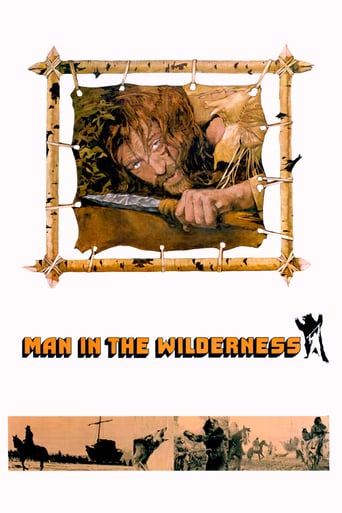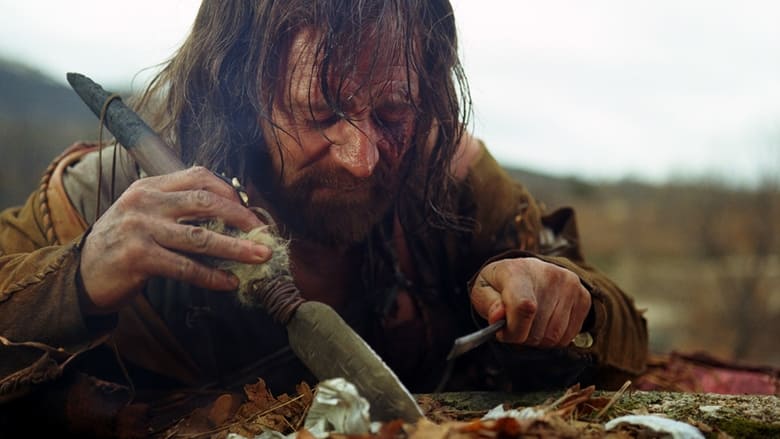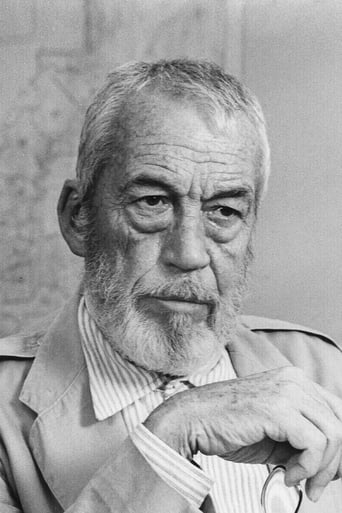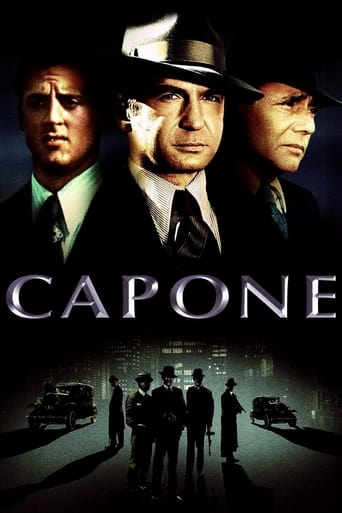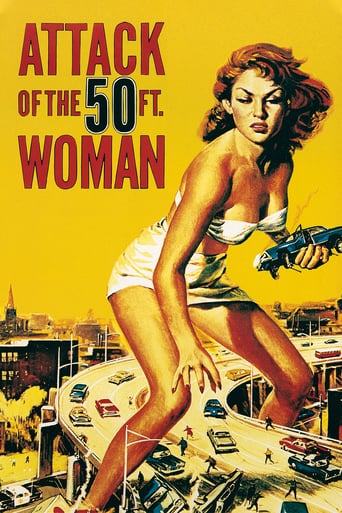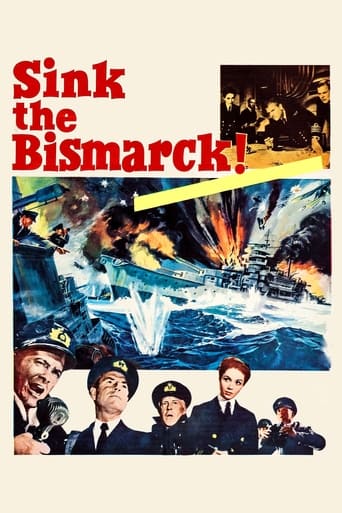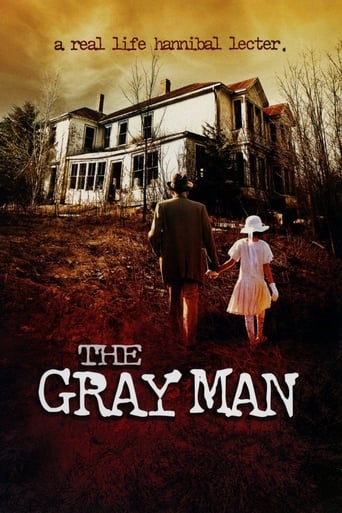Man in the Wilderness (1971)
In the early 1800s, a group of fur trappers and Indian traders are returning with their goods to civilization and are making a desperate attempt to beat the oncoming winter. When guide Zachary Bass is injured in a bear attack, they decide he's a goner and leave him behind to die. When he recovers instead, he swears revenge on them and tracks them and their paranoiac expedition leader down.
Watch Trailer
Cast


Similar titles
Reviews
I don't have all the words right now but this film is a work of art.
Good story, Not enough for a whole film
It’s not bad or unwatchable but despite the amplitude of the spectacle, the end result is underwhelming.
Through painfully honest and emotional moments, the movie becomes irresistibly relatable
The remake of this year called "Revenant" has suddenly brought this original up to date, and a comparison is inevitable. Both have outstanding credits, "Revenant" above all for its amazing panoramic landscape cinematography, but this original weighs heavier. The acting is so much better, it is more humanly convincing, and although it's the same story it's a totally different story with a much more satisfactory and actually surprising end. Already from the start you are informed of all the facts of this adventurous expedition and its circumstances, and how vital it was for the men to get down to Missouri in time before winter - that race with time is the real thriller of the tale, which is totally absent from "Revenant", where instead you are buried in the tribulations of the deserted man, who is being constantly overloaded with new trials and hardships, as if the first was not enough, which is totally unnecessary exaggerations constructed only for effect. Here the narrative is more down to earth with moving details stressing the increasing humanity of the sufferer, such as his witnessing an Indian childbirth and his helping a rabbit with a broken leg - this is all more convincing and credible as a Robinsonade from real life, while "Revenant" in comparison is just mostly exaggerations. Here there is no nasty crook with intentional foul play, and an interesting spice to the human problem complex of the story is how the men actually suffer from having left Zach behind, even hallucinating about him for an extra bad conscience, while Zach himself is brought to maturity and insight by his memories in flashbacks. No bloody cruelty here, only the natural force of circumstances, which makes this film credibly positive in contrast to the remake. "Revenant" also has almost no music, only some moody chords now and then, while here you can enjoy a full and masterful score (by Johnny Harris - never saw his name before) which is perfectly suited to this grand epic human drama of survival and redemption, making a full vote well justified.
I'm re-watching this on my little TV screen (were I rich I'd get me one as big as one whole living room wall, for panoramic stuff like this).I was in my early twenties when MITW hit the theaters. I must have seen it three times, maybe four, bringing friends, at a time when I could scarcely afford proper food and had to hand roll cigarettes from floor sweepings. Now I own the DVD (from the $5 bin at WalMart). On IMDb I often check out the critic and viewer reviews while watching the movie on my TV. IMDb defaults to the Best reviews (usually quite intelligent, even the ones who pan the movie under review), I then often click to the Hated Its, to get a sense of why the overall rating is what it is.Here's the thing I'm thoroughly amazed by (and thoroughly sick of): idiots influencing the IMDb Richter Scale for no discernible purpose or reason. I mean, there are other people who might enjoy this fine 40-plus-year-old fabulously-acted, -written, and -directed film, who might decide to watch Gidget instead, because someone who walked in five minutes late or out the door 30 minutes into it gave Man in the Wilderness one star (I kid you not, go to the Hated Its right now and read a few...you want to talk "theatre of the absurd").Why are such people, who didn't spend the time to watch and understand the film, spending the time to actually vote and even "review" a film they didn't watch? I've no objection to their uninformed opinion (I've lived in and extensively studied the history of the American west, I'm not uninformed, and this truly is a realistic portrayal of Hugh Glass's survival experience; this is not air-brushed, blow-dried Robert Redford--although I love Jeremiah Johnson--this is much closer to how raw history went down and, sorry people, it's not Breakfast at Tiffany's).What the movie is about is not shooting bears or stumbling around torn up in the mud, unshaven, eating berries and raw animal meat, or not having humans to talk to. You want scintillating dialog and haute cuisine, tailored clothes and barbers, why even give us your opinion on a gritty movie about a man stranded in the western wilderness circa 1820? What were you expecting when you sat down to watch it? Witty repartee with squirrels in the frozen mountain passes? Little House on the Prairie? Grizzly Adams? Rather, it's a story about an abandoned solitary survivor's personal evolution from an isolated spiritual being (graphically depicted through the situation and setting) to a man who's found a reason to change, through his personal will to endure, and inner discovery of an interpersonal/inter human reason to survive, for the first time in his existence. Something his wife saw in him which he didn't see in himself, something the Rees Indians saw in him, something Huston/Henry feared: the awakening of the inner Zachary Bass (Hugh Glass). A "rite of passage" into, not adulthood (common enough Hollywood fare), but human-hood, by way of being deprived of it under the most severe imaginable conditions. Based on a true and well-reported story from multiple historical sources (including Jim Bridger, who was there).This is not Hollywood Cowboy Fops and Mouthbreathing Painted Indians.Hey, two of my other favorite 1970s movies were The Godfather and Apocalyse Now. And one of my favorite friends wouldn't watch the Godfather because she'd heard about the horse's head scene, and she liked horses. The other wouldn't watch Apocalypse because he didn't agree with the Viet Nam war. Fine. Ridiculous, but...okay, fine.But they didn't write IMDb reviews about movies they hadn't even given a proper viewing to. And then vote their opinion about something they admitted, up front, to know next to nothing about.I own and have many times re-watched The Mountain Men (Heston and Keith), Jeremiah Johnson (Redford and Geer), and Man in the Wilderness (Harris and Huston). Love them all. But if I had to give two away and keep but one for myself and for posterity, this would be the one, for both verisimilitude and underlying message.But you can't show up late or leave 30 minutes in, or expect Cary Grant in a cravat on a beaver trapping expedition, and expect anyone to mistake you for the late Roger Ebert. Misguided though I often considered his opinions, at least ol' Rog watched the damn movie before he told us what he thought about it and put in his vote.Too many here do not. I hope other readers are attuned to the absurdity of this superficial rating system (no fault of IMDb, great site, great communication vehicle). On many levels (and you the viewer may not get them all, at first, the next one floats up to haunt you, then the next), this is one of the finest movies I believe I've ever watched. The scenes may seem disjointed on first viewing, till something in the back of your mind begins to connect them, over time. As with all truly great art, MITW needs to be revisited from time to time.
This film gives a rather graphic idea of what it took for the real man Zach Bass is based upon, Hugh Glass, to survive and reach a distant outpost of European civilization, after being badly mauled by a mother grizzly and left for dead by his companions. As such, it ranks among the elite in unbelievable survival stories.The film begins following Glass's account quite closely,but gradually diverges somewhat as the story continues. Whereas Bass's companions are returning southward with the year's furs, Glass's historical mauling occurred while they were en route northwestward toward Ft. Henry, near the present MT-ND border.I wish the film had continued to follow Glass's account of his journey to Ft. Kiowa, in present central SD, being aided by Sioux at one point. The film fails to give credit to his subsequent perilous search for all those responsible for leaving him to die, some of whom had since left the expedition. This search for explanation and vengeance consumed about 8 months, much longer than his original epic journey, and often involving traveling long distances alone in winter over the northern plains, with the ever present dangers of hostile 'indians', wolves, starvation and freezing to death. During these journeys, he should have died at least twice, along with most of his companions, at the hands of the Arikaras, and was reported as apparently killed for the second time in less than a year. In a sense, in the film, this period was fused into Bass's epic journey, when he had to travel through snowstorms and snowfields before catching up with his companions. Glass's epic journey occurred from late Aug. to early Oct.Of all the men on the real expedition, Glass was probably uniquely qualified to have any chance of surviving his severe injuries. Although he was around 40, one of the oldest expedition members, he obviously had a very resilient physical constitution. He also probably had the most experience in this environment, having spent several years with the Pawnee after being captured, absorbing their survival skills. He also had incredible luck over the years in surviving situations that his companions often didn't survive. Finally, he was basically a loner, used to relying on himself to survive in this challenging environment.Perhaps I don't fully understand the symbolic nature of John Huston's role as Captain Henry.He seems like a Captain Ahab-like figure, riding on that keelboat on a wheeled carriage, being hauled overland by a team of mules and men. When the men object to the insanity of this operation, he replies that the boat is his only remaining symbol of command of this expedition. In place of Moby Dick, he has a paranoid fear of Bass(Richard Harris), based on his past experience of Bass having a seemingly supernatural ability to escape certain death. Thus, even though Fogarty and Lowrie swear they buried a dead Bass, taking his survival equipment, Henry is certain he is alive and seeking revenge, and periodically looks in the distance for him. Fogarty begins to share his paranoia, and shoots into the darkness around their camp, certain he saw Bass hiding. Of course, Bass does eventually appear. But, instead of being a nightmarish seeker of revenge, he inadvertently saves the others from an attack by a large party of Arikaras. Evidently, the Arikara chief is impressed by Bass's bravery and skill at surviving alone, and decides to spare him and, by extension, the other expedition members, whom he has not yet joined. Yet again impressed by the quirkiness of fate, Bass decides not to press his desire for revenge and, after retrieving his rifle, walks off into the unknown, perhaps having concluded that he is better off relying on himself for survival. Captain Henry seems to sympathize with this decision. If this interpretation is correct, Bass is basically like Jeff Webster in "The Far Country", who prefers to face adversity by himself and not get involved in other people's problems, having been betrayed by others in the past. Alternatively, one reviewer suggests that Bass was going home to see his small son. The first interpretation is more in keeping with Glass's subsequent life.Incidentally, the real Glass did not forgive Fitzgerald, whom he most blamed for his abandonment. Rather, he was refrained from killing this man only by the fact that he had since enlisted in the US army, with a capital penalty for his murder. He had earlier spared Jim Bridger because of his youth and the fact that Bridger had felt compelled to follow the lead of his older companion. Of course, Bridger would go on to become one of the grand old men of the West: one of the lucky few to survive all the hazards of this life.During his epic journey of rebirth, Bass witnesses a squaw brought into the woods, then left alone to give birth in the traditional squatting position. Later, her husband returns to help with the infant and take her back to the village. This brings back memories of Bass's deceased wife and his small child. But, I think he also identifies with her as someone who must also sometimes endure great pain and loneliness in order to fulfill her purpose in life. This helps give him more determination to survive his desperate situation.
See it – This one caught my attention in the opening scene with the big wooden boat being wheeled through the forest. Yes, this is technically a western, but the story takes place in 1820, so it's almost a "colonial era" western. The film stars Richard Harris in his usual stark role as a coarse ruffian. The aforementioned boat is being pulled across the mountains to the Missouri River. But when Harris' character is badly wounded, his fellow trappers leave him behind to die. He must survive on his own in the wilderness. There's not much dialogue by Harris in this film, and it reminded me a lot of "Jeremiah Johnson." There's a great Indian battle with the trappers using the boat as a fort. And there is a very unique ending. Not a twist per se', just not the ending you would expect.

